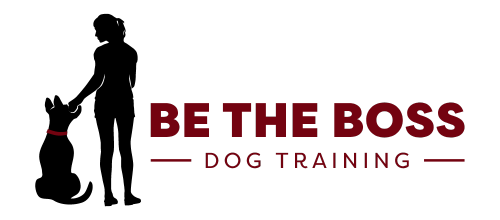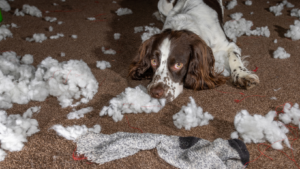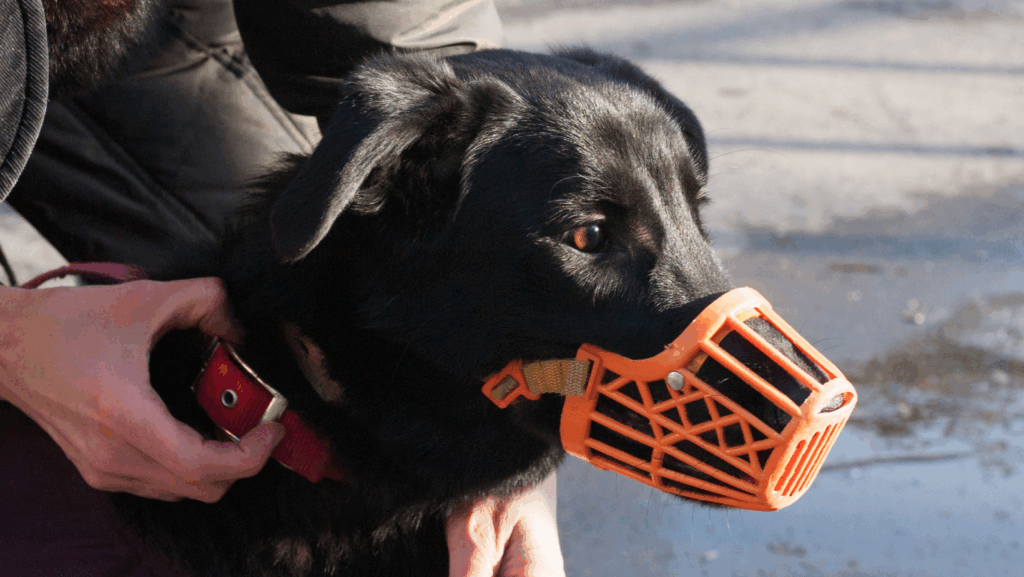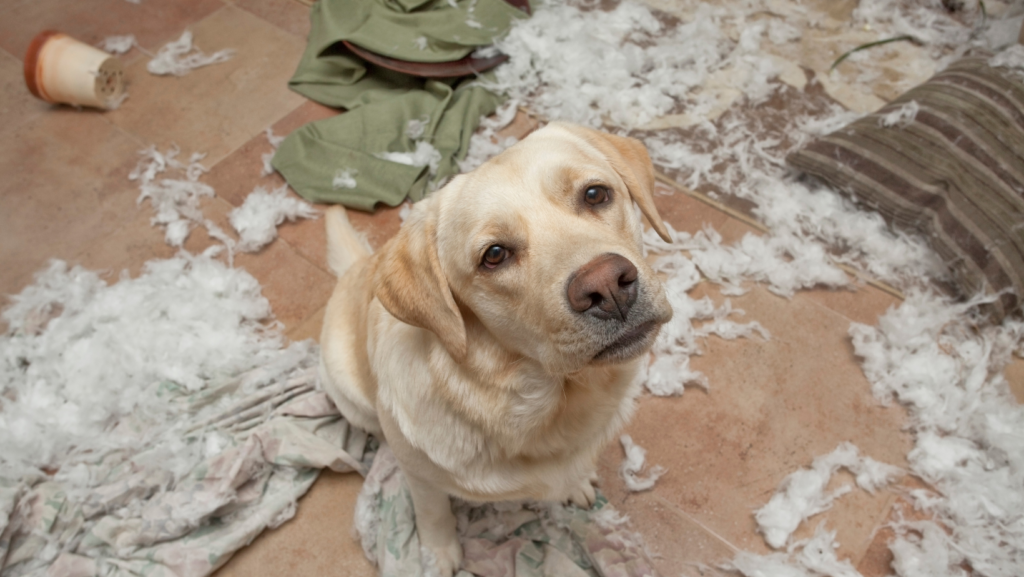People often ask, “Why is my dog acting so weird all of a sudden?”—as if the behavior came out of nowhere. But the truth is usually far simpler and far more uncomfortable: something about you changed. Maybe you altered their schedule, skipped their walk, came home later than usual, or just shifted the energy in the house without realizing it. These are small adjustments to you, but to your dog—who has no power, no explanation, and no way to predict the world—they can be devastating. Unlike humans, dogs don’t get the luxury of processing change through conversation, journaling, or reason. They don’t get to prepare themselves emotionally for a new routine or unexpected chaos. They simply wake up one day to a world that no longer feels familiar, and when that happens, their nervous system does exactly what yours would do under pressure: it panics.
Your dog doesn’t have control — so when you change the routine, you take away the one thing that made them feel safe
Humans are control freaks. We build calendars, we set alarms, we cling to our rituals — and when something disrupts them, we unravel. That’s because predictability makes us feel safe. It gives us a sense of agency. Power. Security. Now imagine living in a world where you have none of that. No control. No ability to change your environment. No explanation for why things happen — just a silent observer to the chaos.
That’s your dog’s life.
They rely on routine not because they’re creatures of habit — but because routine is their only source of stability. You are the center of their universe. Your behavior, your rhythms, your consistency (or lack thereof) tells them whether today is a good day or a terrifying one.
When you shift the routine — skip a walk, feed them late, stay out longer than usual — it’s not just a minor change. To your dog, it’s a complete disruption of safety. Their body responds the same way yours would if your boss showed up unannounced at midnight, demanding answers in a foreign language. Heart racing. Anxiety spiking. Defensive behaviors on full alert.
So when your dog starts acting out, barking more, pacing, tearing something up, ignoring you — stop calling it “bad behavior.” Start calling it what it is: a panic response from a nervous system that’s lost its anchor.
You see, your dog doesn’t understand why their world is suddenly unfamiliar. They just feel it. And they react the only way they know how — by trying to communicate that something is wrong. But we ignore that. We punish it. We label them as “difficult” while we live impulsively and expect them to adapt silently.
This isn’t about guilt. It’s about responsibility. If you’re going to take ownership of a life — especially one that depends on you for every shred of stability — you owe it to them to be aware of how deeply your choices impact their inner world.
Because they don’t get to control much. But they cling to what they can. And when that’s taken away? Acting out isn’t rebellion.
It’s survival.
If this hit a little too close to home… good. That means you care. And if you’re ready to do better — not just hope things improve — reach out. We don’t just train dogs. We help humans rebuild trust, restore calm, and reclaim leadership. Message us directly. Your dog’s peace depends on it.
Your dog is loyal to a rhythm you broke without warning — and now they’re begging for clarity in the only way they know how.
Imagine giving your whole life to someone. You wait for them to wake up. You eat when they say it’s time. You sleep when they settle down. You don’t have a job, a hobby, or a social life outside of them. They are your entire world — your clock, your calendar, your sense of safety. Now imagine they suddenly stop showing up at the usual times. One day, they disappear for hours. The next, they sleep in late. They eat without you, leave without saying anything, come home irritated, and expect you to keep smiling through it all.
That’s what it feels like for your dog when you change the rhythm they’ve come to rely on.
Dogs don’t just follow routine — they cling to it. It’s the one framework that gives their life structure, predictability, and emotional safety. When your actions change without warning, it’s not just confusing for them. It’s destabilizing. You didn’t just alter the plan. You moved the goalposts, and now they don’t know where to stand. It’s not that they’ve suddenly become disobedient or difficult. They’re scrambling to reconnect with you in the only ways they know how — through behavior. And often, that behavior looks inconvenient, disruptive, or downright frustrating.
But the whining, the pacing, the barking, the refusal to listen — that’s not rebellion. That’s your dog asking, “Where did you go? What are the new rules? How do I earn your approval again?” They don’t know how to say, “I’m confused,” so they show it. Loudly.
It’s easy to blame the dog when things go sideways, but very few people want to admit they’re the ones who broke the rhythm in the first place. We forget that dogs don’t thrive on love alone. They thrive on consistency. Predictable interactions. Clear boundaries. And when those disappear, even the most loyal dog starts to act out — not because they’ve changed, but because you did.
Before you call them stubborn, ask yourself this: If the roles were reversed, and someone you adored suddenly stopped showing up the way they used to… wouldn’t you start acting out too?
Want more of this kind of truth? The kind that reshapes how you see your dog — and yourself?
Join our private community where we go deeper, ask harder questions, and actually fix what’s broken.
It’s not fluff. It’s not cute. It’s real.
👉 facebook.com/groups/dogsunleashedutahcounty
Dogs Unleashed — Utah County
Come ready to unlearn.
You expect your dog to stay consistent — while you give yourself permission to be erratic
It’s a strange double standard we have with dogs. We expect them to be calm, patient, predictable, and well-mannered — even as we constantly change the rules on them. We tell ourselves things like, “I’m too tired tonight,” or “He’ll be fine missing a walk this one time,” or “She doesn’t need as much attention today, I’ve got too much going on.” But those moments stack up. And over time, we end up demanding emotional regulation from a creature who’s just doing their best to survive our chaos.
We give ourselves permission to be impulsive, emotional, checked out, distracted — and then get frustrated when our dogs respond to that energy. But dogs are mirrors. They don’t just see what’s happening in the home — they absorb it. If your home feels unpredictable, your dog will become anxious. If your energy is tense and irritable, your dog will reflect that back with reactivity or avoidance. You’re setting the emotional tone, even if you don’t realize it.
And yet, when a dog acts out, we immediately label it as a “behavior problem.” We treat it like it came out of nowhere. But did it? Or are they simply responding to the environment we created — one where expectations are high, but consistency is low?
Dogs thrive on reliability. They need patterns to feel secure. When their person is all over the place — emotionally, physically, energetically — that instability doesn’t just affect them, it defines them. You may not notice that your stress level has been higher for weeks. But your dog does. You may not think skipping three walks in a row matters. But to your dog, that’s three opportunities for regulation and connection that just vanished.
We all have hard days. Life is messy. But if you’re asking your dog for consistency, for calmness, for patience… you have to be honest about whether you’re modeling those things yourself. Because if you’re erratic and reactive and dismissive of your own role in the dynamic, you’ll continue to raise a dog that reflects back the very chaos you’re trying to ignore.
They’re not being dramatic.
They’re being you.
Acting out is your dog’s desperate cry for stability, and deep down, you know what that feels like
There’s a reason your dog’s behavior hits a nerve when they “act out.” Because on some level, whether you’re willing to admit it or not, you recognize that kind of panic. You’ve felt it. Maybe it was in a childhood home where the energy changed without warning — where you tiptoed through the day trying not to set anyone off. Maybe it was a relationship that made you feel emotionally unsafe. That constant bracing. That quiet scanning of the environment. That deep, unsettled feeling of, “I don’t know what’s going to happen next, but I better be ready for it.”
That’s the feeling your dog lives with when their environment becomes unpredictable.
Dogs don’t have the tools to intellectualize instability. They can’t say, “Mom’s just stressed from work,” or “He’s just going through something.” All they know is that the signals are off. The routines are broken. The energy is jagged. And their entire sense of safety — which is rooted in your presence, your consistency, your leadership — is suddenly unreliable.
And just like you may have developed coping strategies as a kid — becoming overly accommodating, acting out, shutting down, withdrawing — your dog has their own version of survival behaviors. Barking, chewing, defiance, whining, reactivity. They’re not misbehaving for fun. They’re scrambling to find safety again. They’re begging for clarity in a world that suddenly feels unsafe.
You don’t need to have grown up in a chaotic household to understand this. You’ve likely had moments in life where the ground felt shaky, where you were grasping for something to hold onto. And that moment of internal chaos? That’s what your dog feels when their environment no longer feels grounded.
So when they act out, don’t reach for punishment. Reach for compassion. Recognize that, just like you, they’re not trying to be difficult — they’re trying to cope. Acting out is their cry for you to see them, lead them, and stabilize what’s spinning. Because they don’t have control. You do.
And when you bring order to the chaos, your dog’s nervous system can finally exhale.
Just like yours did when someone finally showed up and made you feel safe.
Final Thoughts
Your dog isn’t trying to make your life harder. More often than not, they’re just reacting to a world that stopped making sense to them — a world you unknowingly created. It’s easy to forget that our choices, our stress, our shifting priorities have a direct impact on their sense of security. We expect them to stay balanced while we ride emotional highs and lows, skip routines, and live on impulse. And when they act out, we take it personally, rather than seeing it as the very clear cry for stability that it is.
Leadership in the dog world isn’t about control or authority — it’s about clarity. It’s about creating an environment that says, “I’ve got you,” even when life gets messy. Your dog doesn’t need you to be perfect, but they do need you to be predictable. That’s how they regulate. That’s how they trust. That’s how they learn to relax in a world they have no power to control.
It’s not enough to just love your dog. Love without structure feels chaotic. Praise without guidance feels confusing. And affection without leadership leaves them more anxious, not less. If you want a calm, steady dog, you have to become calm and steady first.
So before you label your dog’s behavior as bad, step back and ask what message they’re trying to send. Because when you start listening — really listening — you’ll stop feeling frustrated and start feeling responsible. And that shift changes everything.
Still want to read? Find out what causes separation anxiety in dogs here!





